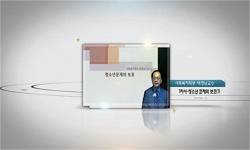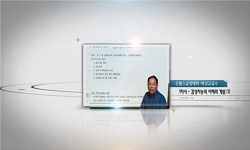The purpose of this study is to develop teaching program which utilizes emotional intelligence elements as a measure to stimulate the motive and scientific attitude of learners and examine the effect of its application. The target unit for this study ...
http://chineseinput.net/에서 pinyin(병음)방식으로 중국어를 변환할 수 있습니다.
변환된 중국어를 복사하여 사용하시면 됩니다.
- 中文 을 입력하시려면 zhongwen을 입력하시고 space를누르시면됩니다.
- 北京 을 입력하시려면 beijing을 입력하시고 space를 누르시면 됩니다.

초등학교 과학교과에서 정서지능 요소를 활용한 수업 프로그램의 개발과 적용 = The Development and Application of Teaching Program to Utilize Emotional Intelligence Elements in Elementary School Science
한글로보기https://www.riss.kr/link?id=A99928118
- 저자
- 발행기관
- 학술지명
- 권호사항
-
발행연도
2014
-
작성언어
Korean
- 주제어
-
KDC
407.05
-
등재정보
KCI등재
-
자료형태
학술저널
- 발행기관 URL
-
수록면
82-94(13쪽)
-
KCI 피인용횟수
2
- DOI식별코드
- 제공처
-
0
상세조회 -
0
다운로드
부가정보
다국어 초록 (Multilingual Abstract)
The purpose of this study is to develop teaching program which utilizes emotional intelligence elements as a measure to stimulate the motive and scientific attitude of learners and examine the effect of its application. The target unit for this study is ‘world of plants’ in the fourth grade of elementary school, and the teaching program is composed of 3 stages including I(encounter with myself), S(encounter with science), and U(encounter with friends). The teaching program is organized in the way to reflect 5 emotional intelligence elements including self-awareness, self-regulation, self-motivation, sympathy, and personal relations properly according to each stage of teaching program. The result of applying this program into actual classrooms is as follows. First, it is proven that the teaching program actually helps improving the motive of learners to study science. The emotional intelligence takes a role of positive motive for thinking, and the learners monitor their emotion and behavior patterns by using a mirror notebook to reduce their anxiety about science. Second, it is proven that the teaching program changes the science related attitude of learners positively. The emotional intelligence elements help the learners to create friendly feeling toward science subject and have a friendly attitude toward science and a sense of expectancy to science class. Third, it is proven that the teaching program contributes to the improvement of learners` science study achievement. The emotional intelligence takes an important role in improving the learners` science study achievement through the role of adjusting and controlling the recognition capability. However, emphasizing the emotional intelligence excessively also has a risk to break the balance between emotion and recognition, so it is considered that the balanced approach should be applied.
참고문헌 (Reference)
1 박재근, "초등학교 과학 수업에서 학습자의 동기 유발과 참여 활동을 구조화한 수업 전략의 개발과 적용" 한국생물교육학회 38 (38): 285-297, 2010
2 이주연, "초등 과학 교과에서 식물 활용 탐구 활동이 정서 지능 및 과학적 태도에 미치는 영향" 한국생물교육학회 39 (39): 362-372, 2011
3 정영란, "중학교 과학 학습에서 EQ 향상 프로그램을 활용한 수업의 효과" 한국과학교육학회 24 (24): 258-266, 2004
4 이인숙, "이러닝 환경에서 정서지능이 학업성취도에 미치는 영향" 한국교육정보미디어학회 18 (18): 227-248, 2012
5 이귀옥, "식물체험활동이 아동의 정서발달에 미치는 영향" 한국실과교육학회 21 (21): 113-128, 2008
6 양명희, "성취목표지향성이 학습결과에 미치는 영향: 정서의 조절효과" 한국교육심리학회 23 (23): 51-71, 2009
7 류제정, "뇌 기반 STEAM 교수-학습 프로그램이 초등과학영재와 초등일반학생의 창의성과 정서지능에 미치는 효과" 한국초등과학교육학회 32 (32): 36-46, 2013
8 조현철, "내외적 학습동기, 자기결정성, 목표지향, 자기지각, 지능관 및 자기조절학습전략 요인들의 학습태도, 학습행동 및 학업성취에 대한 효과" 한국교육심리학회 25 (25): 33-60, 2011
9 박은이, "과학영재 학생들을 대상으로 한 정서지능 프로그램의 효과에 대한 질적 접근" 한국영재학회 20 (20): 703-720, 2010
10 Kim, S., "Trends and international comparative analysis of educational environment in TIMSS" Korea Institute for Curriculum and Evaluation 2012
1 박재근, "초등학교 과학 수업에서 학습자의 동기 유발과 참여 활동을 구조화한 수업 전략의 개발과 적용" 한국생물교육학회 38 (38): 285-297, 2010
2 이주연, "초등 과학 교과에서 식물 활용 탐구 활동이 정서 지능 및 과학적 태도에 미치는 영향" 한국생물교육학회 39 (39): 362-372, 2011
3 정영란, "중학교 과학 학습에서 EQ 향상 프로그램을 활용한 수업의 효과" 한국과학교육학회 24 (24): 258-266, 2004
4 이인숙, "이러닝 환경에서 정서지능이 학업성취도에 미치는 영향" 한국교육정보미디어학회 18 (18): 227-248, 2012
5 이귀옥, "식물체험활동이 아동의 정서발달에 미치는 영향" 한국실과교육학회 21 (21): 113-128, 2008
6 양명희, "성취목표지향성이 학습결과에 미치는 영향: 정서의 조절효과" 한국교육심리학회 23 (23): 51-71, 2009
7 류제정, "뇌 기반 STEAM 교수-학습 프로그램이 초등과학영재와 초등일반학생의 창의성과 정서지능에 미치는 효과" 한국초등과학교육학회 32 (32): 36-46, 2013
8 조현철, "내외적 학습동기, 자기결정성, 목표지향, 자기지각, 지능관 및 자기조절학습전략 요인들의 학습태도, 학습행동 및 학업성취에 대한 효과" 한국교육심리학회 25 (25): 33-60, 2011
9 박은이, "과학영재 학생들을 대상으로 한 정서지능 프로그램의 효과에 대한 질적 접근" 한국영재학회 20 (20): 703-720, 2010
10 Kim, S., "Trends and international comparative analysis of educational environment in TIMSS" Korea Institute for Curriculum and Evaluation 2012
11 Jung, S, "The effects of emotional intelligence program on children’s emotional intelligence and school adjustment" 20 (20): 121-136, 2005
12 Kim, B., "The effect on science related affective domain by science learning applied educational program of emotional intelligence in students of elementary school" Korea National University of Education. 2005
13 Tuan, H. L., "The development of a questionnaire to measure students'motivation towards science learning" 27 (27): 639-654, 2005
14 Pekrun, R., "The control-value theory of achievement emotions : assumptions, corollaries, and implications for educational research and practice" 18 : 315-341, 2006
15 Martin, M. O., "TIMSS 2011 international science report" Boston Colleg 2012
16 Mullis, I. V. S., "TIMSS 2011 international mathematics report" Boston College 2012
17 Ministry of Education, Science and Technology, "Science curriculum" MEST 2011
18 Mischel, W., "Predicting adolescent cognitive and self-regulatory competencies from preschool delay of gratifications : Identifying diagnostic conditions" 26 (26): 978-986, 1990
19 OECD, "PISA 2006 science competencies for tomorrow’s world volume Ⅰ: analysis" OECD 2007
20 Park, O., "Literature review and future direction of research for emotional intelligence"
21 Yang, M., "Investigating the basic academic skills and affective characteristics of 3rd grade students" 22 (22): 47-71, 2005
22 Son, K., "Horticultural therapy" Seowon 1997
23 Gardner, H., "Frames of mind" Basic Books 1983
24 Barrett, L. F., "Emotions:Current issues and future directions" Guilford Press 2001
25 Mayer, J. D., "Emotional intelligence meets traditional standards for an intelligence" 27 : 267-298, 1999
26 Maree, J., "Emotional intelligence and achievement: Redefining giftedness?" 16 (16): 261-273, 2002
27 Goleman, D., "Emotional intelligence" Bantam Books 1995
28 Salovey, P., "Emotional intelligence" 9 (9): 185-211, 1990
29 Mayer, J. D., "Emo tional development and emotional intelligence: educational implication" Basic Books 1997
30 Korea Foundation for the Advancement of Science and Creativity, "Elementary guidebook for teacher, Science 4-2"
31 Min, H., "Effect of emotional Intelligence on social development and academic achievement of elementary school students" Chuncheon National University of Education 2005
32 Eggen, P. D., "Educational psychology:Windows on classroom" Pearson Education Inc 2010
33 Fraser, B. J., "Development of a test of sciencerelated attitudes" 62 (62): 509-515, 1978
34 Moon, Y., "A study to measure emotional intelligence for Korean students, the concept of new intelligence:Emotional intelligence" Education Research Institute at Seoul National University 1997
35 Kwak, Y., "A study on the developmental trend and validity of emotional intelligence" Seoul National University 1997
동일학술지(권/호) 다른 논문
-
2007년 개정 초등 5, 6학년 과학 교과서 물질 영역에 제시된 탐구 활동 분석
- 한국초등과학교육학회
- 김지은 ( Ji Eun Kim )
- 2014
- KCI등재
-
2009 개정 교육과정에 따른 초등학교 3~4학년 과학 교과용 도서 실험본의 "기초탐구" 단원의 효과에 대한 초등학교 교사의 인식
- 한국초등과학교육학회
- 이대형 ( Dae Hyung Lee )
- 2014
- KCI등재
-
- 한국초등과학교육학회
- 오준영 ( Jun Young Oh )
- 2014
- KCI등재
-
초등학생의 과학 상상화 특성 및 과학 상상화 그리기에 대한 인식
- 한국초등과학교육학회
- 황지영 ( Ji Yeong Hwang )
- 2014
- KCI등재
분석정보
인용정보 인용지수 설명보기
학술지 이력
| 연월일 | 이력구분 | 이력상세 | 등재구분 |
|---|---|---|---|
| 2026 | 평가예정 | 재인증평가 신청대상 (재인증) | |
| 2020-01-01 | 평가 | 등재학술지 유지 (재인증) |  |
| 2017-01-01 | 평가 | 등재학술지 유지 (계속평가) |  |
| 2013-01-01 | 평가 | 등재학술지 유지 (등재유지) |  |
| 2010-01-01 | 평가 | 등재학술지 유지 (등재유지) |  |
| 2008-01-01 | 평가 | 등재학술지 유지 (등재유지) |  |
| 2005-01-01 | 평가 | 등재학술지 선정 (등재후보2차) |  |
| 2004-01-01 | 평가 | 등재후보 1차 PASS (등재후보1차) |  |
| 2003-01-01 | 평가 | 등재후보학술지 선정 (신규평가) |  |
학술지 인용정보
| 기준연도 | WOS-KCI 통합IF(2년) | KCIF(2년) | KCIF(3년) |
|---|---|---|---|
| 2016 | 1.21 | 1.21 | 1.35 |
| KCIF(4년) | KCIF(5년) | 중심성지수(3년) | 즉시성지수 |
| 1.34 | 1.28 | 1.783 | 0.5 |





 ScienceON
ScienceON KISS
KISS





